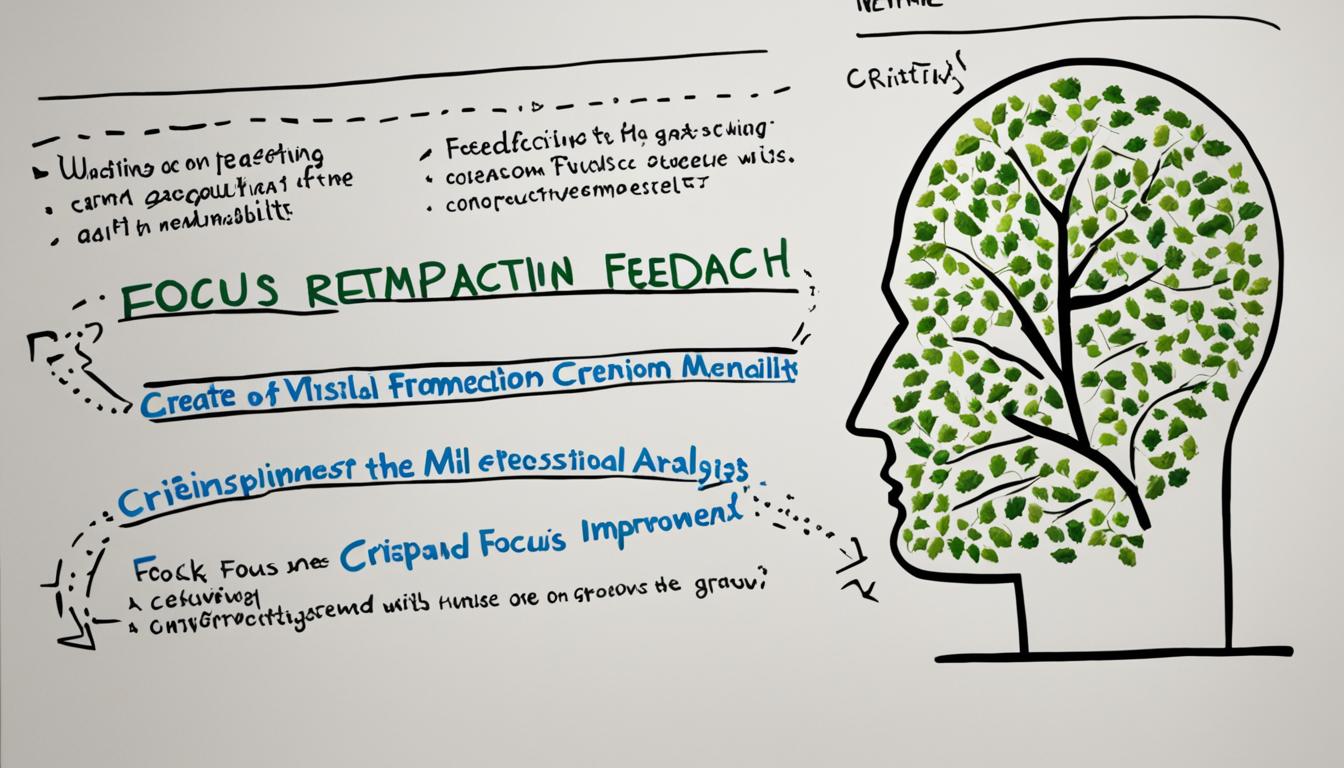Golf is not just a game of physical skill, but also a test of mental strength. Keeping your emotions in check can greatly impact your performance on the golf course. In this article, we will explore strategies and tips for managing your emotions and maintaining composure while playing golf.
Emotional control in golf is essential for staying calm and focused amidst the challenges of the game. It involves regulating your feelings and reactions, allowing you to make better decisions and execute shots with precision. By mastering emotional regulation, you can enhance your golf mindset and improve your overall performance.
Key Takeaways:
- Emotional regulation is crucial for peak golf performance
- Managing your emotions can help you stay calm on the golf course
- Golf performance psychology focuses on strategies for emotional stability
- Developing a growth mindset and practicing emotional control techniques are key
- By mastering emotional regulation, you can enhance your golfing experience
Understanding the Mental Game of Golf
The mental game of golf encompasses various aspects of a player’s mindset while on the course. It includes emotional control, expectation management, course management, decision-making, pre/post-shot routine, and situational control. Emotional control is particularly important as it allows players to stay level-headed and reproduce the necessary mechanics for good ball-striking. Managing emotions requires an understanding of neurotransmitters and their impact on the body and brain.
Emotional control is the cornerstone of the mental game in golf. It is the ability to manage and regulate emotions to remain calm, focused, and in control during a round. By maintaining emotional stability, golfers can optimize their performance and make better decisions on the course.
Expectation management is another critical component of the mental game. It involves setting realistic goals and avoiding excessive pressure or frustration when faced with challenging situations. By managing expectations, golfers can reduce anxiety and perform more consistently.
Course management is the strategic approach to playing each hole. It involves analyzing the layout, hazards, and conditions to make informed decisions about shot selection, target areas, and risk-reward scenarios. Effective course management can lead to better scoring and minimize errors.
Decision-making is an essential skill in golf, as players constantly face choices regarding shot selection, club choice, and strategy. Making informed decisions based on the situation and one’s capabilities is crucial for optimal performance.
A pre-shot routine is a structured sequence of actions and thoughts that players go through before executing a shot. It helps establish focus, confidence, and consistency by creating a familiar routine that prepares the mind and body for the upcoming shot. A post-shot routine allows players to evaluate and reflect on their shots, learning from each experience and maintaining focus for the next shot.
Situational control refers to adapting to changing conditions and circumstances on the golf course. It involves adjusting strategies, shot selection, and mindset based on factors such as wind, weather, course conditions, and competitors. Being adaptable is key to overcoming challenges and maximizing performance.
Understanding the mental game of golf is crucial for golfers of all levels. By developing emotional control, managing expectations, practicing effective course management, making sound decisions, implementing consistent pre/post-shot routines, and adapting to different situations, players can enhance their performance and enjoy a more fulfilling golfing experience.
Strategies for Emotional Control and Expectation Management
Emotional control and expectation management are crucial aspects of maintaining composure on the golf course. By implementing effective strategies, golfers can enhance their emotional stability and improve their overall performance. Let’s explore some proven techniques to help you master emotional control and manage your expectations.
1. Develop a Growth Mindset
One way to cultivate emotional control is by adopting a growth mindset. This mindset emphasizes continuous improvement and learning from challenges. Be mindful of your thoughts and emotions on the golf course. Instead of viewing mistakes or setbacks as failures, see them as learning opportunities. This perspective shift can help you stay positive and focused, even in difficult situations.
2. Practice Mindful Meditation
Mindful meditation is a powerful tool for managing emotions. Take a few minutes before your round to sit quietly and focus on your breath. Allow any negative thoughts or distractions to fade away as you bring your attention to the present moment. This practice can help you develop mental clarity, reduce stress, and improve emotional regulation.
3. Keep a Mental Scorecard
Tracking your progress using a mental scorecard can be beneficial for managing expectations. Instead of fixating on the outcome of each shot, focus on evaluating your effort, focus, and decision-making process. This shift in mindset allows you to set process-oriented goals and appreciate the small victories, leading to improved emotional control throughout your round.
4. Understand Shot Patterns
Each golfer has unique shot patterns influenced by their abilities and playing style. By understanding and acknowledging your shot patterns, you can manage your expectations better. Recognize your strengths and weaknesses and adjust your strategy accordingly. This approach helps you maintain emotional balance, as you’ll have realistic expectations based on your own abilities.
5. Manage Expectations
Managing expectations is crucial for emotional control on the golf course. Avoid placing excessive pressure on yourself to achieve specific outcomes. Instead, focus on executing each shot to the best of your ability. Embrace the process and enjoy the game without getting too attached to the outcome. This mindset shift allows you to stay present, play with more freedom, and maintain composure.
Implementing these strategies for emotional control and expectation management can significantly enhance your golfing experience. Develop a growth mindset, practice mindful meditation, keep a mental scorecard, understand your shot patterns, and manage your expectations. By doing so, you’ll improve your emotional stability and set yourself up for success on the golf course.

Quick Fixes for Managing Emotions on the Golf Course
When emotions start to affect your game, there are quick fixes that can help you regain control on the golf course.
- The “2 Second Rule”: Give yourself a limited amount of time to release frustration or disappointment after a bad shot. Allow yourself just 2 seconds to let it out and then quickly refocus on your mental routine. This technique prevents emotions from lingering and allows you to maintain composure throughout the game.
- Fake it Till You Make it: Consciously project confidence and calmness through your body language and mental imagery. Act as if you are composed and in control, even if you don’t feel that way. By faking confidence, you can trick your mind into feeling more in control and boost your overall performance.
Conclusion
Emotional regulation is a crucial aspect of achieving peak performance on the golf course. By understanding and effectively managing our emotions, we can improve our overall game and maintain composure even under pressure. To enhance our emotional control and expectation management, there are several strategies we can incorporate into our golf routine.
Firstly, developing a growth mindset is essential. By being open to learning and embracing challenges, we can approach each round of golf with a positive and resilient attitude. Practicing mindful meditation can also help us cultivate emotional stability and focus, allowing us to stay present in the moment and make better decisions on the course.
Moreover, implementing quick fixes for managing emotions can be incredibly beneficial. One technique is the “2-second rule,” which allows us to acknowledge and release negative emotions within a limited timeframe. This helps us quickly refocus on our mental routine and regain composure. Additionally, by consciously projecting confidence through our body language and mental imagery, we can trick our mind into feeling more in control, even when faced with challenging situations.
Remember, mastering emotional regulation is an ongoing process that requires practice and self-awareness. By incorporating these strategies into our golf routine, we can enhance our performance and enjoy a more fulfilling golfing experience. So, let’s take charge of our emotional state, improve our golf course performance, and strive for peak performance in golf.
FAQ
What is emotional regulation in golf?
Emotional regulation in golf refers to the ability to manage and control one’s emotions while playing the game. It involves staying calm, composed, and focused, regardless of the ups and downs experienced on the golf course.
Why is emotional control important in golf?
Emotional control is crucial in golf because it allows players to maintain their composure and reproduce the necessary mechanics for good ball-striking. It helps prevent emotions from negatively impacting decision-making, shot execution, and overall performance.
How can I develop a growth mindset in golf?
Developing a growth mindset involves being aware of your thoughts and emotions on the golf course. It requires embracing challenges, viewing failures as opportunities for growth, and setting realistic expectations. Practicing mindfulness and meditation can also help cultivate a growth mindset.
How can managing expectations improve emotional control?
Managing expectations in golf involves understanding and accepting your own abilities and limitations. By setting realistic goals and focusing on process-oriented targets instead of outcome-oriented ones, you can reduce frustration, maintain emotional control, and stay more present in the moment.
What are some quick fixes for managing emotions on the golf course?
Two quick fixes for managing emotions during a round of golf are the “2 second rule” and “faking it till you make it.” The “2 second rule” involves giving yourself a limited amount of time to release frustration and refocus on your mental routine. “Faking it till you make it” requires projecting confidence and calmness through body language and mental imagery, which can help trick your mind into feeling more in control.
How can I enhance my emotional regulation in golf?
To enhance your emotional regulation in golf, it’s important to practice strategies such as developing a growth mindset, incorporating mindful meditation into your routine, and implementing quick fixes for managing emotions. Consistent practice and self-awareness are key to improving emotional stability and achieving peak performance on the golf course.



